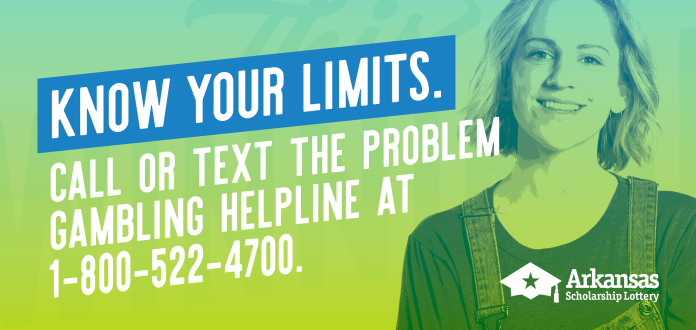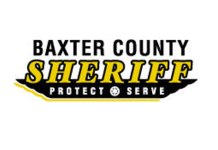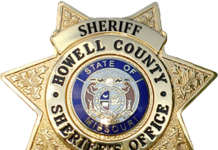LITTLE ROCK, Ark. – March is Problem Gambling Awareness Month, and the Arkansas Scholarship Lottery (ASL) wants to spread the word that help is available around the clock to those who may need it.
“We are dedicating March to helping people ‘have the conversation’ about problem gambling,” said Eric Hagler, ASL executive director. “Approximately two million adults in the United States – or about 1 percent of the population – are considered problem gamblers; yet for many, gambling remains a hidden addiction.”
Problem Gambling Awareness Month is designed to help raise awareness of the prevention, treatment and recovery services available for those adversely affected by gambling.
“The mission of the lottery is to provide proceeds for scholarships in a responsible way. We want people to remember that the lottery should be considered entertainment and not a way to make money,” said Hagler.
Problem gambling includes all gaming behavior that damages personal, family or vocational pursuits. In extreme cases, problem gambling can result in financial ruin, legal problems, loss of career and family or suicide.
Last year ASL launched “The Player’s Hub” to help educate players on how to participate responsibly, understand game odds and get any needed support with problem gambling.
In 2019 the Arkansas Scholarship Lottery received Responsible Gambling Certification from the North American Association of State and Provincial Lotteries and the National Council on Problem Gambling (NCPG). The certification involves a multi-step verification program to ensure the lottery provides best practices in training for lottery employees and retailers plus treatment options for players who may have a gambling problem.
If you or someone you know think you have a problem with gambling, review the questions below. If you answer yes to at least one question, you may have a gambling problem:
- Have you often gambled longer than you had planned?
- Have you gambled until your last dollar was gone?
- Have thoughts of gambling caused you to lose sleep?
- Have you used your income or savings to gamble while letting bills go unpaid?
- Have you attempted to stop gambling, but couldn’t?
- Have you borrowed money to finance gambling?
- Have you gambled to get money or to meet financial obligations?
- Have you felt remorseful after gambling?
- Have you felt depressed or suicidal because of gambling losses?
- Have you broken the law or considered it to finance gambling?
Problem gambling is a preventable and treatable disorder. Help is available. For problem gambling resources, visit the ASL Player’s Hub at https://playershub.myarkansaslotery.com/ or call or text the 24-hour confidential National Problem Gambling Helpline at 1-800-522-4700.






